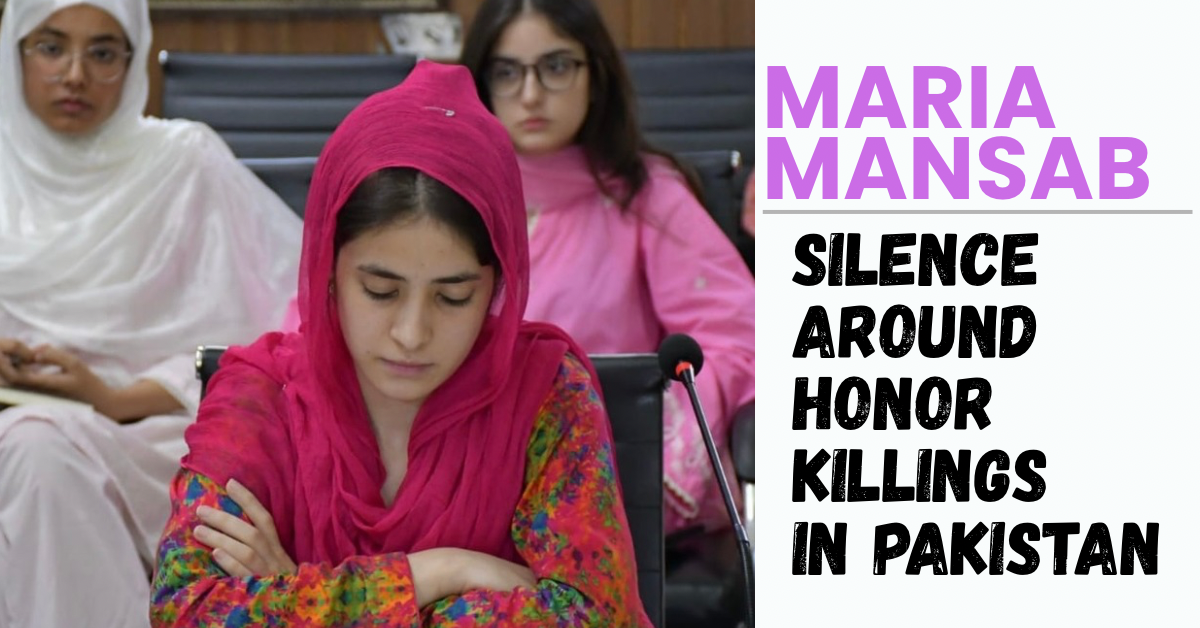In Balochistan’s mountains, where legend and life bleed into one another, stories live longer than their storytellers. Two hundred years ago, a boy named Lal Khan, known as Mast Tawkali, fell in love not with a woman, but with her defiance against the norms of her time. Her name was Sammo, a newlywed trying to hold down her tent in a monsoon storm. Her dupatta flew off, but she remained unaware, focused on securing her shelter. In that brief instant, Lal Khan witnessed not a woman, but strength. The outcome? Poetry that would make them both eternal.
Nobody murdered Mast Tawkali for falling in love with a married woman. No man claimed wounded honor. Rather, today he is Hazrat Mast Tawkali, and the woman whom he loved lives in the name of thousands of girls still named Sammo or Sami across Balochistan.
Fast forward 200 years to the year 2025. The world is digital, globalized, and deeply fractured. Balochistan is still drenched in stories, but now, they are soaked in blood. A woman becomes immortal in a different way.
In a viral video that tore through social media, a woman accused of an “illicit relationship” is brought before a group of armed men. Holding a Qur’an in her hand, she speaks just one sentence in Brahvi (Local language) before being shot down:
“You are only allowed to shoot me, nothing else.”
The man and the woman had married against tribal traditions, out of love. They have lived together as husband and wife for more than a year and a half. Eventually, under the pretense of reconciliation, they were called back by the tribe and the local jirga. Once they returned, both were taken to a desert and killed in cold blood in the name of “honor.”
She does not beg. She does not tremble. Her words are not a plea but a declaration. They have the same defiant spirit as Sammo’s, except this time, there is no Mast Tawkali to turn it into poetry. The bullets did that for her.
This is not a single tragedy; this is part of a national pattern of namoos and ghairat (honor) wrapped in centuries-old patriarchy and reinforced by the silence today. Human Rights Commission of Pakistan (HRCP) states that in 2024 alone, a minimum of 335 women and 119 men were murdered in so-called honor killings. According to the Aurat Foundation’s 2024 report, 73 cases of violence against women were recorded alone in Balochistan, including 19 women and 14 men who were killed in the name of honor.
Actual numbers are estimated to be much greater. Women are frequently killed for the crime of love, for refusing forced marriages, or for choosing their own lives over tribal codes.
Even in death, women are not left alone. A woman who dares to love, such as Qandeel Baloch, killed by her brother in 2016, becomes a symbol of freedom. Laws were amended after her death to criminalize honor killings with a life sentence. Yet, law without enforcement is poetry without a reader.
Pakistan remains 145th out of 146 nations in the Global Gender Gap Index, a terrible reflection of systemic failure. In courtrooms, in homes, offices, and village jirgas, women are reduced to property. And when they rebel, they pay with their lives.
When that Baloch woman spoke her last words, she was not pleading for mercy. She was reminding us that she owns her life and her death. We must remember her as a symbol of fierce resistance. Her words should be engraved in every protest banner, whispered in every courtroom, and shouted in every corner of this country:
You are only allowed to shoot me. Nothing else.
That line has to become Pakistan’s rallying cry against the hollow honor that justifies killing, the cowardice that silences survivors, and the laws that fail those they claim to protect.
This is the age of media, of viral truth, and of shared consciousness. We no longer need to mythologize women after their death. We need to protect them in life.
Sammo did not ask for love. Qandeel did not ask for fame. The woman in Balochistan did not ask for forgiveness.
They asked for one thing only: dignity.
Let us give it by rewriting laws, reshaping minds, and refusing to let another woman’s last words be lost in the sound of gunfire.

